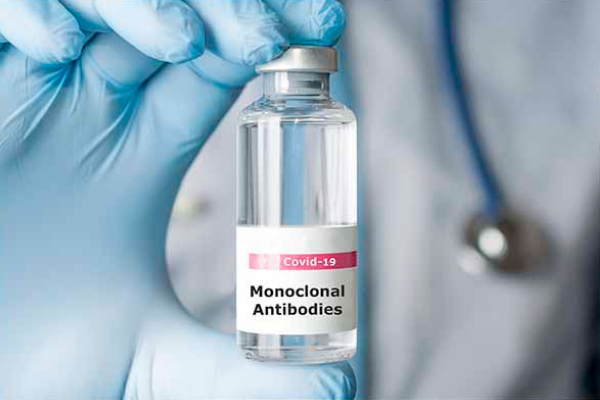
The Food and Drug Administration (FDA) deauthorized the use of two monoclonal antibody treatments to fight COVID-19 due to observed ineffectiveness against the omicron variant.
The combination therapies bamlanivimab plus etesevimab (BAM/ETE), and casirivimab plus imdevimab (REGEN-COV), “are not authorized for use in any U.S. states, territories, and jurisdictions at this time,” FDA said in an update released Jan. 24.
The statement also noted omicron is estimated to account for more than 99% of U.S. COVID cases as of Jan. 15.
FDA said these treatments could be authorized in the future if patients in certain areas are likely to be infected or exposed to a variant which those therapies are effective against.
In a Jan. 25 letter to therapeutic administrators notifying them of FDA’s decision, the Texas Department of State Health Services (DSHS) encouraged physicians and other health professionals to review the locations in Texas that carry the monoclonal antibody treatment sotrovimab – which has shown effectiveness against omicron – or to consider other therapeutic options as appropriate, such as the oral medications Paxlovid or molnupiravir. For dispensing locations of those oral medications, DSHS referred administrators of therapeutics to the U.S. Department of Health and Human Services’ COVID-19 Therapeutics Locator.
FDA officials also emphasized that physicians and other health professionals should consult the National Institute of Health’s COVID-19 treatment guidelines to assess whether these treatments are right for their patients.
Last Updated On
April 05, 2022
Originally Published On
January 25, 2022